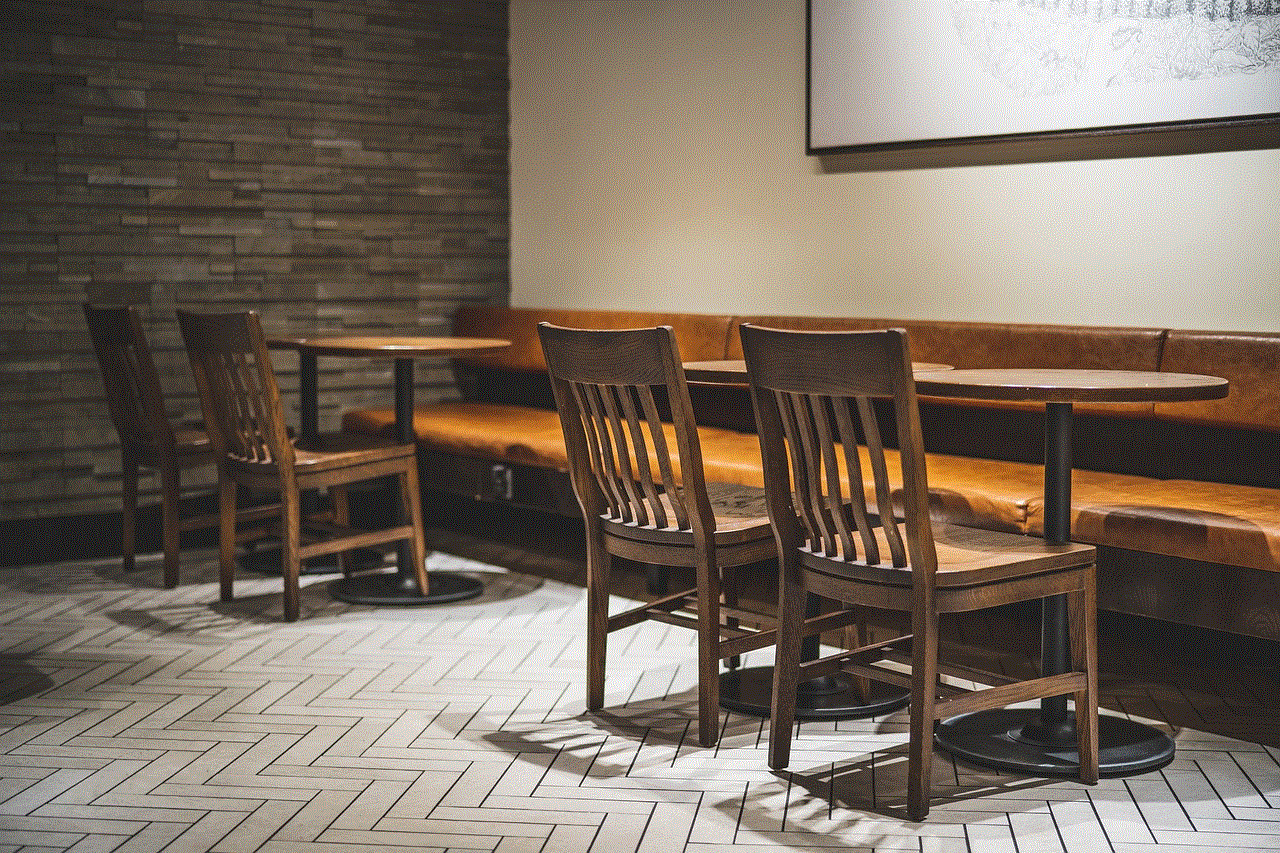how to delete snap conversation
Snap Conversation, also known as Snapchat , is a popular social media platform that allows users to share photos, videos, and messages with their friends. It is a fun and interactive way to communicate with others, but sometimes, conversations can become overwhelming or unwanted. In such cases, deleting a snap conversation may be necessary. In this article, we will discuss the reasons why someone may want to delete a snap conversation and the steps to do it effectively.
Reasons for Deleting a Snap Conversation
1. Privacy Concerns
Privacy is a major concern when it comes to using social media platforms. People often share personal information and private photos with their friends on Snapchat , but sometimes, these conversations may contain sensitive information that you do not want others to see. In such cases, deleting the conversation can ensure that your privacy is maintained.
2. Unwanted Conversations
Snapchat is a platform where anyone can send you a message or add you as a friend. This may lead to unwanted conversations with strangers or people you do not want to interact with. Deleting these conversations will remove them from your account and prevent further communication with that person.
3. Clearing Space
Snapchat conversations can take up a lot of space on your device, especially if you have a lot of active conversations. If you are running low on storage, deleting old conversations can help clear up space on your phone.
4. Organizing Your Chats
Deleting snap conversations can also help in organizing your chats. It can be overwhelming to have too many conversations, and deleting some can help you focus on the ones that matter.
How to Delete a Snap Conversation
To delete a snap conversation, follow these steps:
1. Open your Snapchat app and log in to your account.
2. Swipe right to go to the chat screen.
3. Find the conversation you want to delete and long-press on it.
4. A pop-up menu will appear with the options to “Delete Chat” or “Clear Conversation.”
5. If you choose “Delete Chat,” the conversation will be deleted, and you will not be able to retrieve it. However, if you choose “Clear Conversation,” the messages will be deleted, but the conversation will remain in your chat list.
6. Confirm your choice, and the conversation will be deleted.
If you want to delete multiple conversations at once, follow these steps:
1. Open your Snapchat app and go to the chat screen.
2. Tap and hold on one of the conversations you want to delete.
3. Without lifting your finger, tap on the other conversations you want to delete.
4. Once you have selected all the conversations, tap on the “Delete” button at the bottom of the screen.
5. Confirm your choice, and all the selected conversations will be deleted.
If you want to delete all your conversations at once, follow these steps:
1. Open your Snapchat app and go to the chat screen.
2. Tap on the gear icon in the top right corner to go to your settings.
3. Scroll down and find the “Clear Conversations” option.
4. Tap on it, and a pop-up menu will appear with the option to “Clear All” conversations.
5. Confirm your choice, and all your conversations will be deleted.
Tips for Deleting Snap Conversations
1. Be sure of your decision before deleting a conversation. Once it is deleted, you cannot retrieve it.
2. If you want to save a particular message from a conversation, take a screenshot before deleting it.
3. If you are deleting a conversation to clear up space, consider clearing your cache and deleting other unnecessary data from your device.
4. If you are deleting a conversation because it contains sensitive information, consider changing your privacy settings or blocking the person from contacting you.
5. Regularly delete old conversations to keep your chat list organized and prevent your phone from running out of storage.
In conclusion, deleting a snap conversation can be necessary for various reasons. Whether it is to maintain your privacy, clear up space, or organize your chats, the steps mentioned above can help you delete conversations effectively. Just remember to be cautious and sure of your decision before deleting a conversation, as it cannot be undone. Happy snapping!
what was my last phone call



As technology continues to advance at an unprecedented rate, it’s hard to imagine a time when cell phones were not an integral part of our daily lives. From making phone calls to sending texts, browsing the internet, and even managing our schedules, our phones have become a one-stop-shop for communication and organization. We rely on our phones so much that it’s almost impossible to remember a time when we didn’t have them.
But have you ever stopped to think about your last phone call? Who was it with? What was it about? In this article, we’ll delve into the topic of the last phone call and explore the significance it holds in our lives.
The first phone call took place on March 10, 1876, when Alexander Graham Bell spoke the famous words, “Mr. Watson, come here, I want to see you.” This marked the beginning of a revolution in communication and the birth of the telephone. However, it wasn’t until the late 20th century that cell phones became widely accessible to the public.
The first commercial cell phone call was made on April 3, 1973, by Martin Cooper, a Motorola engineer, who called his rival at Bell Labs to announce his successful invention. From that day on, cell phones continued to evolve, becoming smaller, more affordable, and packed with more features.
Fast forward to the present day, and it’s hard to imagine life without a cell phone. According to a 2019 survey by the Pew Research Center, 96% of Americans now own a cell phone, with 81% owning a smartphone. With the rise of smartphones, the way we communicate has drastically changed. Texting, social media, and video calls have become the new norm, and traditional phone calls are often seen as a thing of the past. But despite the shift in communication methods, phone calls still hold a special place in our lives.
So, what was my last phone call? As I scrolled through my call history, I realized that it was with my mother. It was a short call, just to check-in and see how each other’s day was going. But it made me think about the significance of that call and the role phone calls play in our relationships.
Phone calls allow us to connect with our loved ones in a way that texting or social media can’t. The sound of a familiar voice, the tone, and the emotions conveyed through a phone call make it a more personal form of communication. It allows us to have a real-time conversation, just like we would if we were sitting face to face.
In a world where we are constantly bombarded with notifications and messages, phone calls provide a sense of undivided attention. When you receive a phone call, you know that the person on the other end has taken the time to call you and focus solely on the conversation. This makes the exchange more meaningful and shows that the person values your relationship.
Furthermore, phone calls can be a lifeline for those who are physically apart. Whether it’s a long-distance relationship, a family member living in a different country, or a friend who moved away, a phone call allows us to bridge the distance and maintain a sense of closeness. It’s a way to share our daily experiences, laugh, and cry together, just like we would if we were in the same location.
Apart from personal relationships, phone calls also serve a practical purpose. When we need to make important decisions, have a lengthy conversation, or discuss sensitive matters, a phone call is often the best option. It eliminates the back and forth of text messages and allows for a more efficient exchange of information.
In the workplace, phone calls are still a vital form of communication. Whether it’s with clients, colleagues, or superiors, a phone call allows for clear and concise communication. It also adds a personal touch, which can help build stronger business relationships. In some cases, a phone call is necessary for urgent matters, and it’s a more reliable way to ensure that the message is conveyed accurately.
Moreover, phone calls play a significant role in emergency situations. When we’re faced with an urgent matter, a phone call is often the first thing we do. Whether it’s calling 911, a family member, or a friend for help, a phone call can be a lifesaver. In these situations, the sound of a familiar voice can bring a sense of comfort and reassurance.
But while phone calls have many benefits, they also have their downsides. With the rise of smartphones, people are now constantly connected to their devices, making it hard to disconnect and have some downtime. The convenience of texting and messaging has also led to a decline in phone call etiquette. Missed calls, not returning calls, or simply ignoring calls have become the norm, which can lead to miscommunication and damaged relationships.



In addition, phone calls can also be a source of anxiety for some people. The fear of not knowing what to say, being put on the spot, or simply not wanting to talk on the phone can cause stress and discomfort. This can be especially challenging for those with social anxiety or introverted personalities.
But despite these challenges, phone calls remain an essential part of our lives. They allow us to connect with others, build and maintain relationships, and serve a practical purpose. And while texting and social media may have taken over as the preferred method of communication, the significance of a phone call cannot be denied.
As I reflect on my last phone call with my mother, I realize that it may have been a brief conversation, but it meant more than I initially thought. It was a reminder of the special bond we share and the importance of taking the time to connect with our loved ones. So, the next time your phone rings, don’t hesitate to answer, because you never know when that call may hold more significance than you think.
can people see when you view their facebook
With over 2.89 billion monthly active users, facebook -parental-controls-guide”>Facebook is undoubtedly one of the most popular social media platforms in the world. It allows people to connect with friends and family, share their thoughts and experiences, and discover new content. However, one question that has been a topic of curiosity for many users is whether people can see when they view their Facebook profile. In this article, we’ll delve into the intricacies of Facebook’s privacy settings and determine whether or not people can see when you view their Facebook.
To begin with, let’s understand the basics of Facebook’s privacy settings. Facebook offers a variety of privacy options that allow users to control who can see their posts, photos, and personal information. These settings can be accessed by clicking on the “Privacy” tab under the “Settings” menu. Users can choose to make their profile public, so anyone on Facebook can see their posts, or they can limit their posts to only their friends or a selected group of people.
Now, coming to the question at hand, can people see when you view their Facebook profile? The short answer is no. Facebook does not provide an option for users to see who has viewed their profile. However, there are some third-party apps and websites that claim to have the ability to track profile views. These apps often come with a catch, such as requiring users to share their personal information or pay a fee. It’s important to note that these apps are not endorsed by Facebook and can compromise your privacy and security.
But why doesn’t Facebook have a feature to see who has viewed your profile? The answer lies in the platform’s privacy philosophy. Facebook’s mission is to connect people and build communities, and the platform believes that this can only be achieved through a safe and secure environment. Allowing users to see who has viewed their profile goes against this philosophy and can lead to stalking and harassment. Therefore, Facebook has refrained from adding such a feature to its platform.
However, there are some ways in which people can indirectly know that you’ve viewed their profile. One such way is through the “Seen” feature on Facebook Messenger. If you’ve read a message on Messenger, the sender will be notified that the message has been “Seen.” This feature can give the impression that you’ve viewed their profile, but in reality, it only means that you’ve seen their message.
Another way people can know that you’ve viewed their profile is if you like or comment on their post. In such cases, they will receive a notification that you’ve interacted with their post. However, they won’t be able to see that you’ve specifically viewed their profile.
Furthermore, if you’ve searched for someone on Facebook and clicked on their profile, they may receive a notification that you’ve searched for them. However, this is only applicable if you’re not friends with that person and have searched for them using the Facebook search bar. This notification is a privacy feature that alerts users when someone is trying to find them on Facebook.
Now, you might be wondering, what about the “People You May Know” section on Facebook? This section suggests people you may know based on mutual friends, shared interests, and other factors. Sometimes, people might think that Facebook is suggesting these people because they’ve viewed their profile. However, this is not the case. Facebook’s algorithms are constantly analyzing user data to suggest relevant and potential connections. The people suggested in this section may have also searched for you or interacted with your profile in some way, leading to Facebook’s algorithm suggesting them as a potential connection.
In addition, Facebook also has a feature called “Story Views,” which allows users to see who has viewed their Facebook Story. A Facebook Story is a short-lived post that disappears after 24 hours. However, this feature is only available to business accounts and not personal profiles. Therefore, if you’re a regular Facebook user, you won’t be able to see who has viewed your Story.



So, to summarize, people cannot see when you view their Facebook profile. However, certain features such as “Seen” on Messenger and notifications for likes and comments can indirectly give the impression that you’ve viewed someone’s profile. But these features do not reveal that you’ve specifically viewed their profile.
In conclusion, Facebook prioritizes user privacy and security and does not have a feature to see who has viewed your profile. While there may be some ways in which people can indirectly know that you’ve viewed their profile, these are just features of the platform and do not serve the purpose of showing who has viewed your profile. It’s important to be cautious of third-party apps and websites that claim to provide such information, as they can compromise your privacy and security. So, rest assured, you can browse through someone’s profile without them knowing on Facebook.